EDGAR DEGAS ~ THE MYSTERY OF A PAINTING


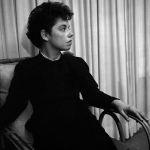
“I am a writer and I want to write.” ― Jane Bowles Fear and Hope “Like most people, you

MARIA YAKUNCHIKOVA (1870-1902) WOMEN WITH A PASSION FOR ART The first female artist I want to introduce in the series
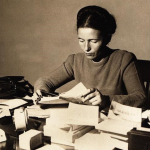
THE SIMONE DE BEAUVOIR EFFECT “I am incapable of conceiving infinity, and yet I do not accept finity.” SIMONE


“I am a writer and I want to write.” ― Jane Bowles Fear and Hope “Like most people, you

MARIA YAKUNCHIKOVA (1870-1902) WOMEN WITH A PASSION FOR ART The first female artist I want to introduce in the series

THE SIMONE DE BEAUVOIR EFFECT “I am incapable of conceiving infinity, and yet I do not accept finity.” SIMONE


“I am a writer and I want to write.” ― Jane Bowles Fear and Hope “Like most people, you

MARIA YAKUNCHIKOVA (1870-1902) WOMEN WITH A PASSION FOR ART The first female artist I want to introduce in the series

THE SIMONE DE BEAUVOIR EFFECT “I am incapable of conceiving infinity, and yet I do not accept finity.” SIMONE
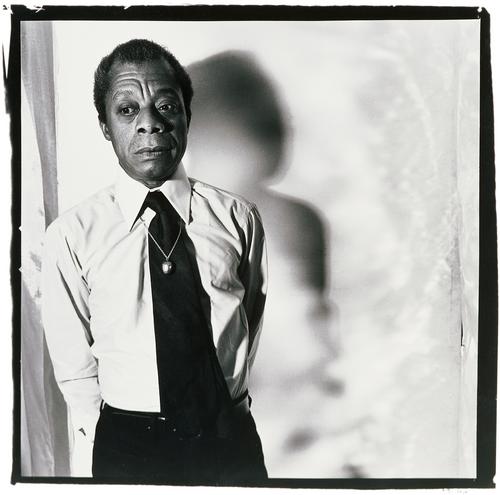

This intense novel is about a young mother and wife called Zoe Kruller, who is brutally murdered. It uses mixed storylines

“You can’t buy happiness, but you can buy books and that’s kind of the same thing.” Anonymous Girl Reading

“I am a writer and I want to write.” ― Jane Bowles Fear and Hope “Like most people, you
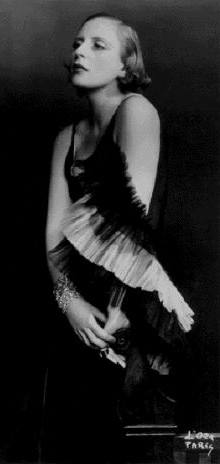
…for my inspiration…I liked to go out in the evenings…
and have a good-looking man tell me how beautiful I am
or how great an artist I am –
and he touches my hand … I loved it! – I needed that.
And I had many, many.”
Tamara de Lempicka
Tamara de Lempicka (Łempicka) (16 May 1898 – 18 March 1980), born Maria Górska in Warsaw, Poland, was a Polish Art Deco painter and “the first woman artist to be a glamour star”.

“I am a writer and I want to write.” ― Jane Bowles Fear and Hope “Like most people, you
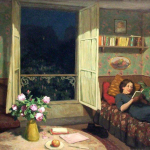
Series Women and their Passion for Books “What on earth could be more luxurious than a sofa, a book, and

MARIA YAKUNCHIKOVA (1870-1902) WOMEN WITH A PASSION FOR ART The first female artist I want to introduce in the series
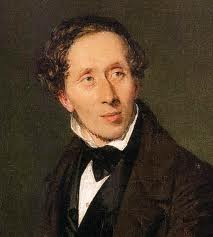
It is really curious how men, whom I otherwise look upon as honest, and who in other respects are not my enemies, lie monstrously, and are hardly conscious of it themselves, when they really get into a passion. Passion has an extraordinary power. How foolish, then, is the modern seeking after system upon system, as though help was to be found there; no, passion must be purified.
Soren Kierkegaard’s Journal, 1846

“I am a writer and I want to write.” ― Jane Bowles Fear and Hope “Like most people, you

Series Women and their Passion for Books “What on earth could be more luxurious than a sofa, a book, and
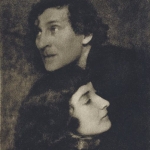
MARC AND BELLA CHAGALL ~ A COLORFUL LOVE “In our life there is a single color, as on an artist’s
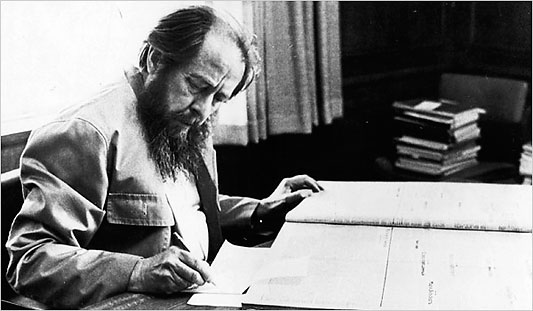
“Own only what you can always carry with you: know languages, know countries, know people. Let your memory be your travel bag.”
― Aleksandr I. Solzhenitsyn
Aleksandr Isayevich Solzhenitsyn ; 11 December 1918 – 3 August 2008) was a writer, who, through his often-suppressed writings, helped to raise global awareness of the gulag, the Soviet Union’s forced labor camp system – particularly in The Gulag Archipelago and One Day in the Life of Ivan Denisovich, two of his best-known works. Solzhenitsyn was awarded the Nobel Prize in Literature in 1970. He was expelled from the Soviet Union in 1974 but returned to Russia in 1994 after the Soviet system had collapsed

“I am a writer and I want to write.” ― Jane Bowles Fear and Hope “Like most people, you

THE SIMONE DE BEAUVOIR EFFECT “I am incapable of conceiving infinity, and yet I do not accept finity.” SIMONE
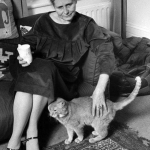
ONE WAY TO READ A BOOK In the opinion of the famous writer Doris Lessing there is only one
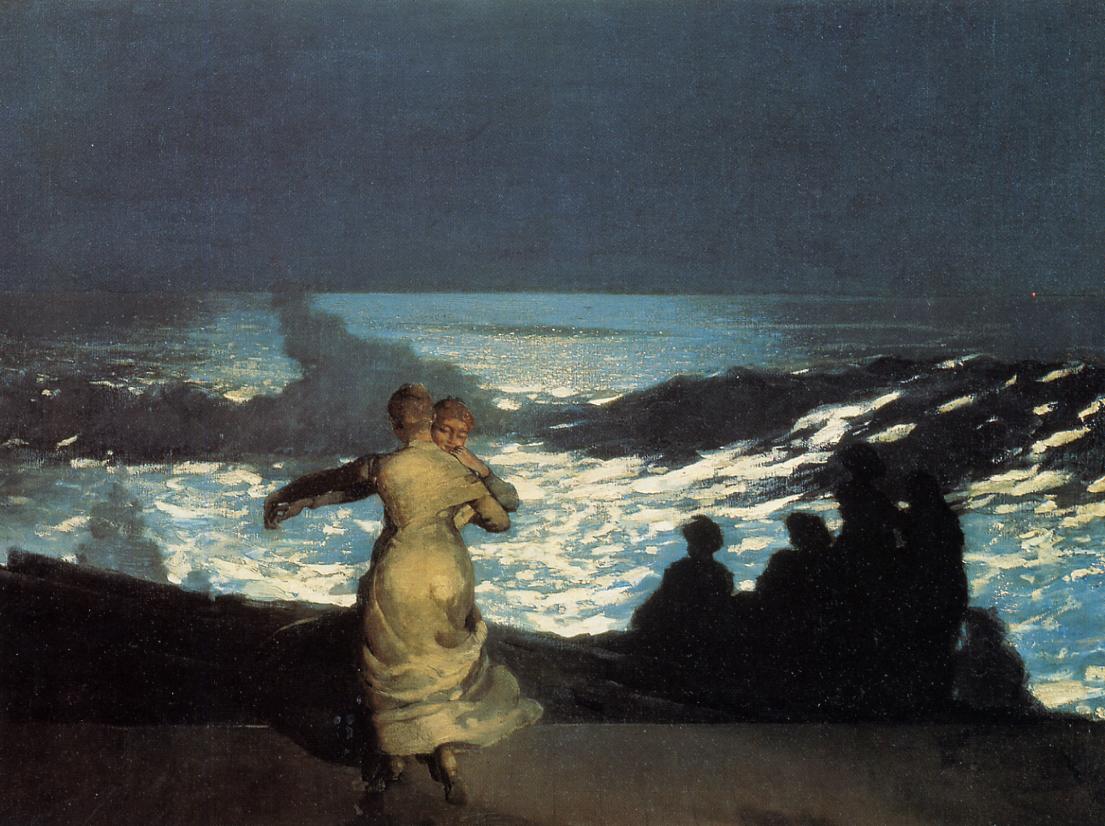
And then we added the colors in the rain
The hundred pins in the skeletons of dust
In the dawn and evening
Of the wedding of mourning
In the earth of the harsh country
But if the sun falls
Within you in the years
And the heart is not yet sweet
Let no one touch it
In the how many years of the sun…
Akosah Kwadwo
2012
Painting is A Summer Night, 1890 by Winslow Homer
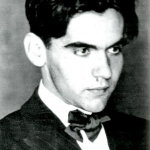
Federico Garcia Lorca “Let there be a landscape of open eyes and bitter wounds on fire. No one is sleeping
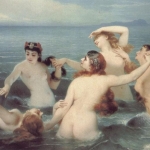
THE SIRENS ARE ENCHANTERS Circe warns Odysseus about the Sirens: “You will come first of all to the Sirens, who
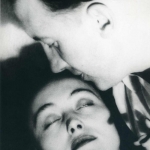
A poem by Paul Eluard “I cannot be known Better than you know me Your eyes in which we sleep
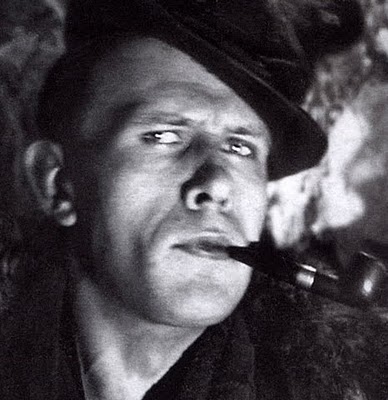
Daniil invented the pseudonym Kharms while attending high school at the prestigious German “Peterschule”. While at the Peterschule, he learned the rudiments of both English and German, and it may have been the English “harm” and “charm” that he incorporated into “Kharms”.rs. It is rumored that he scribbled the name Kharms directly into his passport.
In 1924, he entered the Leningrad Electrotechnicum, from which he was expelled for “lack of activity in social activities”. After his expulsion, he gave himself over entirely to literature. He joined the circle of Aleksandr Tufanov, a sound-poet, and follower of Velemir Khlebnikov’s ideas of zaum (or trans-sense) poetry. He met the young poet Alexander Vvedensky at this time, and the two became close friends and inseparable collaborators.
In 1927, the Association of Writers of Children’s Literature was formed, and Kharms was invited to be a member. From 1928 until 1941, Kharms continually produced children’s works and had a great success.
In 1928, Daniil Kharms founded the avant-garde collective OBERIU, or Union of Real Art. He embraced the new movements of Russian Futurism laid out by his idols, Khlebnikov, Kazimir Malevich, and Igor Terentiev, among others. Their ideas served as a springboard. His aesthetic centered around a belief in the autonomy of art from real world rules and logic, and the intrinsic meaning to be found in objects and words outside of their practical function.
By the late 1920s, his antirational verse, nonlinear theatrical performances, and public displays of decadent and illogical behavior earned Kharms — who always dressed like an English dandy with a calabash pipe — the reputation of being a talented but highly eccentric “fool” or “crazy-man” in Leningrad cultural circles.
Even then, in the late 20s, despite rising criticism of the OBERIU performances and diatribes against the avant-garde in the press, Kharms nurtured a fantasy of uniting the progressive artists and writers of the time (Malevich, Filonov, Terentiev, Vladimir Mayakovsky, Kaverin, Zamyatin) with leading Russian Formalist critics (Tynianov, Shklovsky, Eikhenbaum, Ginzburg, etc.,) and a younger generation of writers (all from the OBERIU crowd—Alexander Vvedensky, Konstantin Vaginov, Nikolai Zabolotsky, Igor Bakhterev), to form a cohesive cultural movement of Left Art. Needless to say it didn’t happen that way.
Kharms was arrested in 1931 together with Vvedensky, Tufanov and some other writers, and was in exile from his hometown (forced to live in the city of Kursk) for most of a year. He was arrested as a member of “a group of anti-Soviet children’s writers”, and some of his works were used as an evidence. Soviet authorities, having become increasingly hostile toward the avant-garde in general, deemed Kharms’ writing for children anti-Soviet because of its absurd logic and its refusal to instill materialist and social Soviet values.
He continued to write for children’s magazines when he returned from exile, though his name would appear in the credits less often. His plans for more performances and plays were curtailed, the OBERIU disbanded, and Kharms receded into a very private writing life.

“I am a writer and I want to write.” ― Jane Bowles Fear and Hope “Like most people, you

THE SIMONE DE BEAUVOIR EFFECT “I am incapable of conceiving infinity, and yet I do not accept finity.” SIMONE

Federico Garcia Lorca “Let there be a landscape of open eyes and bitter wounds on fire. No one is sleeping


“I am a writer and I want to write.” ― Jane Bowles Fear and Hope “Like most people, you

THE SIMONE DE BEAUVOIR EFFECT “I am incapable of conceiving infinity, and yet I do not accept finity.” SIMONE

ONE WAY TO READ A BOOK In the opinion of the famous writer Doris Lessing there is only one